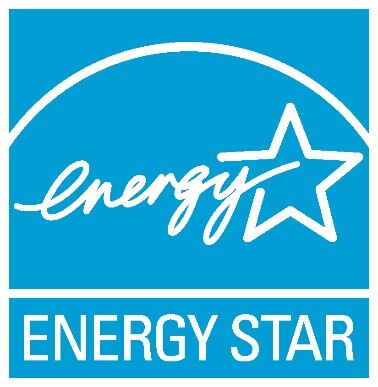Selecting an appliance can be a big investment. The right appliance, though, will save you time and money down the road and make life easier! Here are three key things to look for when replacing your appliances and tips to consider when replacing specific appliances:
- Look for the ENERGY STAR® logo. Energy Star has criteria for most appliances making it easier than ever to find an efficient model. Certified appliances not only save on energy bills but in the case of dishwashers and clothes dryers, also save substantial amounts of water. Look for this logo when searching for an ENERGY STAR model.

- Think about comfort. In addition to personal choices like color and environmental choices like efficiency, there can be big differences in noise for some products like dishwashers. Look for and compare decibel (dB) ratings.
- Recycle your old appliances. Learn how to responsibly dispose of your appliance.
Before you start appliance shopping, consider these options:
Refrigerators and Freezers
For the lowest energy bills, start by choosing the smallest refrigerator that works for you. Fridges with freezers on top are more efficient than those with freezers on the bottom, and side-by-side configurations are generally the least efficient. Avoid automatic icemakers and door dispensers if you can – they increase energy use by up to 20%.
Once you have that new refrigerator or freezer in your home, do not set the fridge temperature to maximum cold. Set it between 35- and 38-degrees Fahrenheit to help reduce its energy consumption. Additionally, be sure to conduct maintenance on your new refrigerator to extend its lifetime. Cleaning the coils from dust will allow them to release heat they have pulled from the fridge more efficiently and defrosting your fridge regularly will keep the compressor from having to run longer to maintain cold temperatures. And remember to recycle the old appliances you just replaced.
Review the list of ENERGY STAR certified refrigerators and find the right one for your home.
Dishwashers
An ENERGY STAR dishwasher not only saves a lot of energy, but also uses much less water. A standard size ENERGY STAR dishwasher uses under 3.5 gallons of water over the entire washing cycle, far less than the 10-15 gallons used by pre-1994 models.
Dishwashers are among the loudest appliances in the home. Since they are commonly in areas surrounded by people and conversation, you may want to consider its noise rating, measured in dB. Because of how decibels are measured, a 44 dB dishwasher will be roughly six times quieter than a 60 dB dishwasher. That can make a big difference in being able to hear conversations in your kitchen!
Clothes Washers and Clothes Dryers
Front-loading clothes washers are the most efficient. Compared to a standard top loading clothes washer, an ENERGY STAR front-loading washer will use about 50% less water and 45% less energy. They also handle more clothes in less space while doing a better job cleaning and are gentler on clothing. As an added bonus, ENERGY STAR clothes washers spin out more water, which means less time and energy to dry clothes once the washing is done.
ENERGY STAR clothes dryers save on energy bills through a variety of efficiency features such as lower heat settings and sensors that stop the dryer when clothes are dry. For even bigger savings, consider a heat pump clothes dryer. Heat pump clothes dryers reuse hot air to remove moisture from your clothing rather than venting it outdoors. Clothes are dried at lower temperatures, there is no need for a dryer vent, and less electricity is used.
Once you have your new clothes washer, run it on the coldest water setting and wash full loads for the lowest energy bills. For dryers, air dry when possible, run full loads, and remember to clean dryer vents.
And be sure to check out our blog for additional energy-saving tips.
Dehumidifiers
If you are looking to replace an existing dehumidifier or purchase a new one, look for the ENERGY STAR label. ENERGY STAR certified dehumidifiers have many benefits including improving your comfort, quality of life, safety, and saving money on your energy bill. Read our blog on Getting the Most Out of Your Dehumidifier to learn more.




